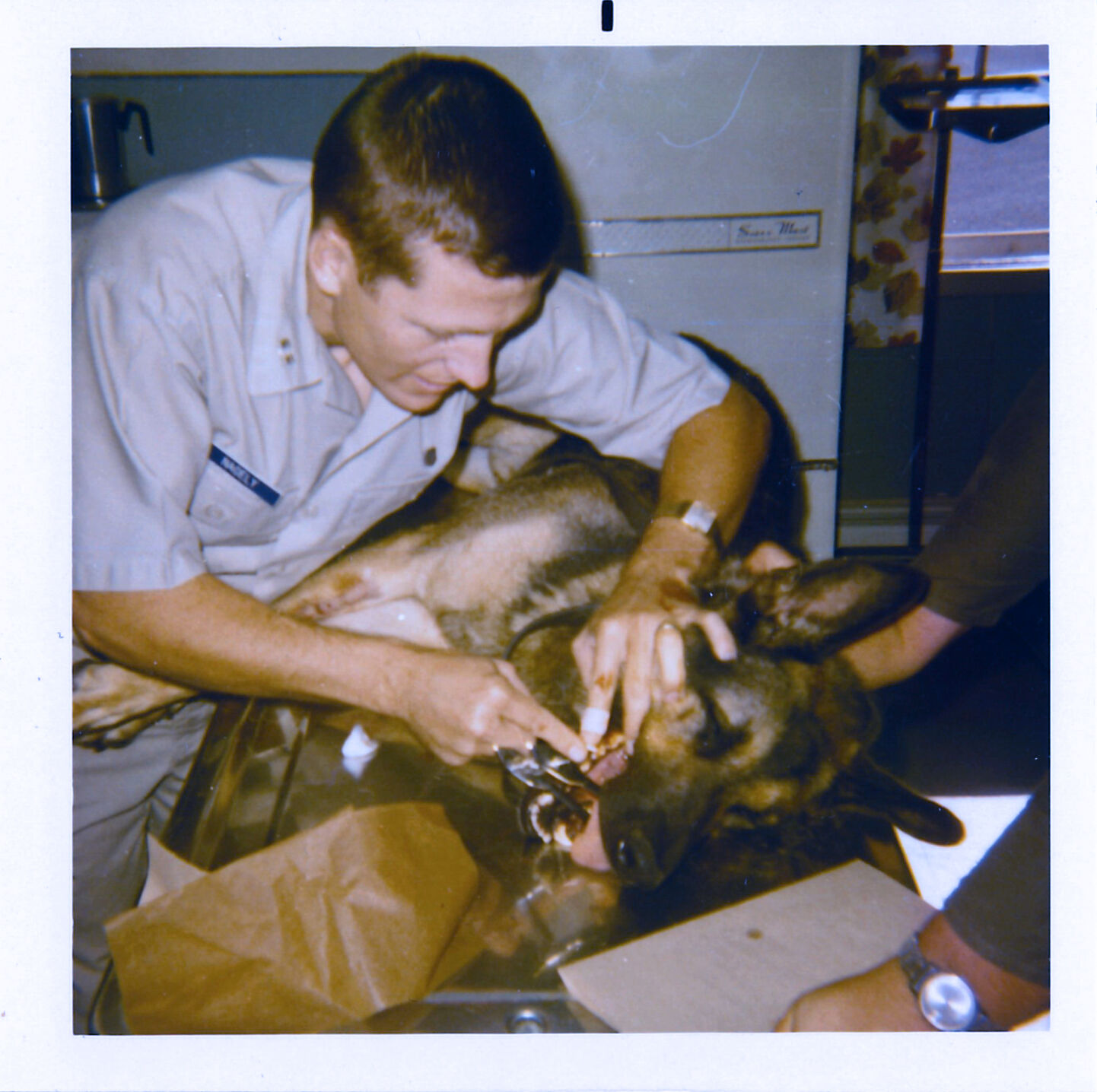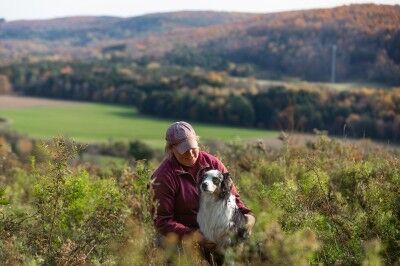Former Air Force captain, AFB veterinarian recalls his experience caring for sentry dogs

It was 1969 on Suffolk County Air Force Base in Westhampton Beach, New York. Inside the veterinary clinic and food inspection office, one could easily hear and feel the roar of high-performance bombers ascending from the nearby runway. With two jet engines on the back, they would illuminate the sky as a stream of fire trailed behind them.
“Those planes just rocketed down that runway and made a terrific roar. It was pretty impressive,” said Arnold Nagely, DVM, co-founder of Valley Vet Supply. After attending Kansas State University for veterinary medicine, Dr. Nagely served as a Captain and veterinarian with the United States Air Force. “Our base provided air protection for the Eastern seaboard, including Washington, D.C., and New York City. In just moments’ notice, our pilots could be in the air.”
Among Dr. Nagely’s responsibilities included food inspection for dining halls and foodservice distributors providing goods to the base, to prevent foodborne illness. He also cared for military family pets and the sentry dogs who guarded the base.
“We had 18 sentry dogs, and these were German Shepherds or German Shepherd-cross dogs that were trained to be very vicious and be handled by one person,” recalled Nagely. “Their purpose was to patrol the munitions depot. The dogs were quite important—they were very integral in providing a higher level of security and safety. They hear and smell so well, picking up scents and potential threats long before their handler would.”
According to articles published online, dogs have a significantly more advanced sense of smell—some reports say anywhere from 10,000 to 100,000 times more acute than that of humans. Reports also state dogs can hear sounds four times farther away than humans can. Their senses, and companionship, made them excellent comrades.
Like all dogs, sentry dogs also would require an annual exam. The dogs’ handlers would bring them in, and Nagely would—with the handler’s assistance—draw blood for heartworm tests, clean their teeth and give them a comprehensive physical exam.
Nagely recalled what it was like if the dogs were ever reassigned to a new handler.
“They would put the dog on one side of the fence, a chain-link fence, and the new handler would sit on the ground on the outside and read the newspaper to him. The dog would become acquainted with their voice and personality and eventually, they would become friends and a new match pair,” Nagely said.
It was an experience he would never forget. “It was a unique thing that you wouldn’t have experienced in a typical rural practice,” he said.
With Veteran’s Day approaching, Nagely looked back on his time in the service with much gratitude to those who have served our country.
“Our country has gone to the aid of many countries around the world to preserve democracy. When you look at the veterans of World War I and World War II, and many others—even if they didn’t give their lives, they gave it all,” Nagely said. “It is amazing the sacrifices that they made, so we can have the luxuries that we have today. I would just like to say to those who have served in the armed forces—a sincere thank you, on behalf of our whole country.”
Nagely co-founded Valley Vet Supply alongside fellow veterinarian Ray Shultz, DVM, in 1985. Nagely grew up on a diversified farm in rural Dickenson County, near Abilene, Kansas. They raised crops and livestock, mostly beef cattle and also some dairy and swine.


